The Nagorno-Karabakh conflict has recently entered a tense period due to the statements made by the Armenian Prime Minister and the President of Azerbaijan. The world public opinion had expected positive developments after the first contact between Aliyev and Pashinyan regarding the solution process at the Commonwealth of Independent States summit that was held just after Pashinyan’s election. The meeting of the foreign ministers of these two states with the help of U.S. mediation also raised the expectations for the solution process. However, as the developments in Armenia's domestic politics turned against Pashinyan, the discourse on Nagorno-Karabakh began to sharpen.
Last August in his speech at the opening ceremony of the Pan-Armenian Games held in Nagorno-Karabakh, Pashinyan toughened his stance on Nagorno-Karabakh by saying Karabakh is Armenia, period! .[1] Many researchers that closely follow the subject commented that this statement of Pashinyan would undermine the solution process in Nagorno-Karabakh. Pashinyan, who has been losing his support in domestic politics day by day, tried to stand behind this discourse and made some statements on Nagorno-Karabakh at the 74th Session of the UN. In his speech Pashinyan said that Azerbaijan presented the Nagorno-Karabakh conflict as a territorial dispute between Armenia and Azerbaijan, but this was not the case.[2] He then reiterated that peace talks should take place in a format involving all parties. As it can be remembered, last year, Pashinyan stated in his speech at the 73rd Session of the UN that “Azerbaijan declares Nagorno-Karabakh had to be in its territory on every occasion, but peace could not be achieved without negotiating with the administration of Nagorno-Karabakh”.[3] Whereas according to the UN resolutions on Nagorno-Karabakh, Armenia is recognized as an occupying country in the international community. Therefore, the possibility of the inclusion of the so-called Nagorno-Karabakh administration in the OSCE Minsk process was not accepted by any country, especially Azerbaijan.
If we consider Pashinyan's statements in the UN within the context of his words "Karabakh is Armenia" on August 5, we can see how troubled the tripartite negotiation approach is, which has been expressed many times before. In the same way, we can say that the effort to portray Azerbaijan as an obstructing party in the peace talks is meaningless. After his election, Pashinyan started to use this rhetoric in order to ensure the recognition of Nagorno-Karabakh indirectly in the international community and to ease the responsibility of his country. However, Pashinyan, who had to change his discourse due to the internal political disputes, refuted his own rhetoric by saying Karabakh is Armenia. He shows clearly that Armenia violated the territorial integrity of Azerbaijan. Moreover, he shows once again that the image they are trying to project of Nagorno-Karabakh being an independent structure from Armenia does not reflect the facts.
Russian Foreign Minister Sergei Lavrov commented on the Armenian Prime Minister’s statements at the Valdai Discussion Club held in Sochi on 4 October. Lavrov strongly criticized Pashinyan and stated that these kind of statements hinder the political progress in the conflict resolution process.[4] Lavrov's remarks also show that Russia, as co-chair of the OSCE Minsk group, will not ignore the attempts to distort the format of the peace negotiations. Pashinyan's adherence to the policies of the former administration, which ignoreed international law, will not help him in domestic politics and will adversely affect his international reputation. However, the fact that no explanation has yet been made from the other co-chairs of the Minsk group, France and the USA, has a damaging effect on the confidence towards the solution process. In order to proceed in a healthy manner, all co-chairs should take a common stance. Otherwise, to remain silent against Armenia’s attempts to produce these kind of discourses may lead to a perception of a tacit acceptance being present.
This statement of Pashinyan could briefly be evaluated in terms of its impacts on the relations with Turkey. As is known, Pashinyan stated after his election that he is ready for the dialogue without preconditions regarding relations with Turkey. He mentioned that the bilateral dialogue could not be established due to Turkey bringing the Nagorno-Karabakh issue on the table as a precondition. Turkey’s policy on this issue is the resolving of the Nagorno-Karabakh issue through a solution which Azerbaijan will accept. However, with these words, Pashinyan is blocking the path of reconciliation with Azerbaijan. Apparently, the Nagorno-Karabakh issue is a precondition for Armenia for the re-establishment of relations with Turkey.
The photograph was taken from Turan.az.
© 2009-2025 Center for Eurasian Studies (AVİM) All Rights Reserved
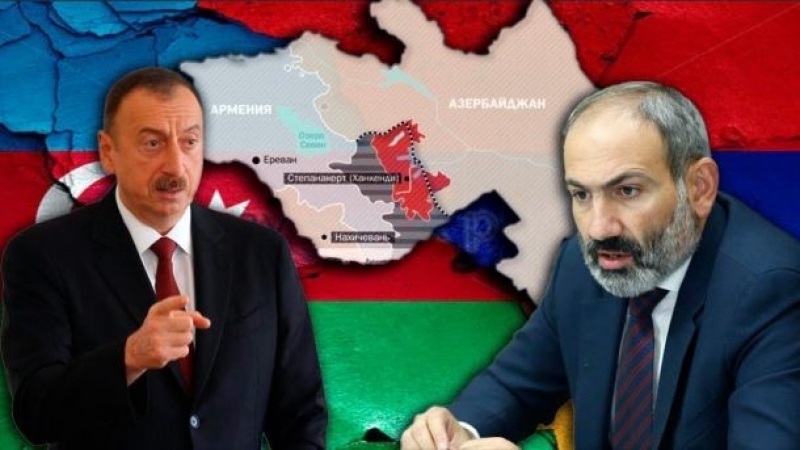
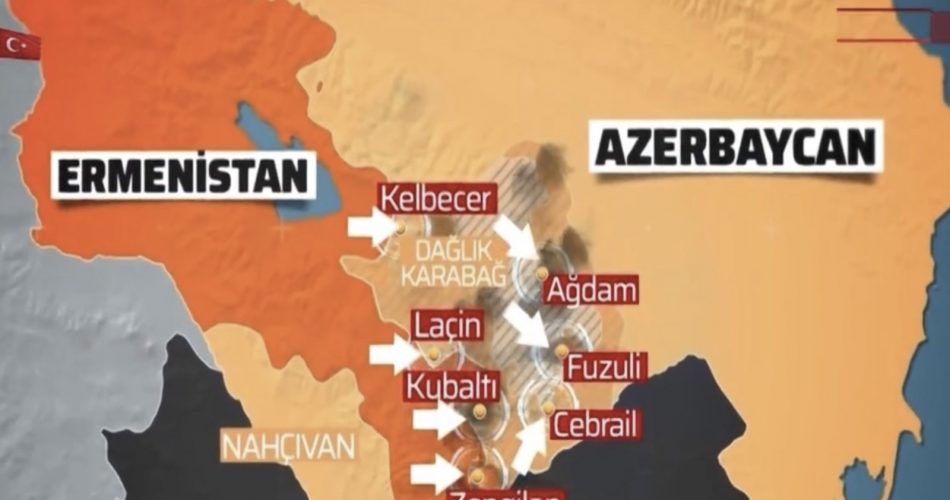 THE CONFLICT BETWEEN AZERBAIJAN-ARMENIA FROM TOVUZ TO NAGORNO KARABAKH
THE CONFLICT BETWEEN AZERBAIJAN-ARMENIA FROM TOVUZ TO NAGORNO KARABAKH
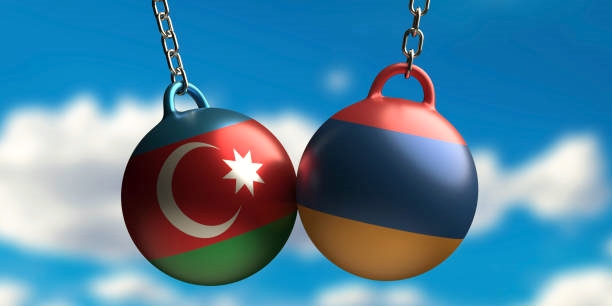 THE NAGORNO-KARABAKH IS SWINGING ON A PENDULUM, AND THE CLOCK IS TICKING
THE NAGORNO-KARABAKH IS SWINGING ON A PENDULUM, AND THE CLOCK IS TICKING
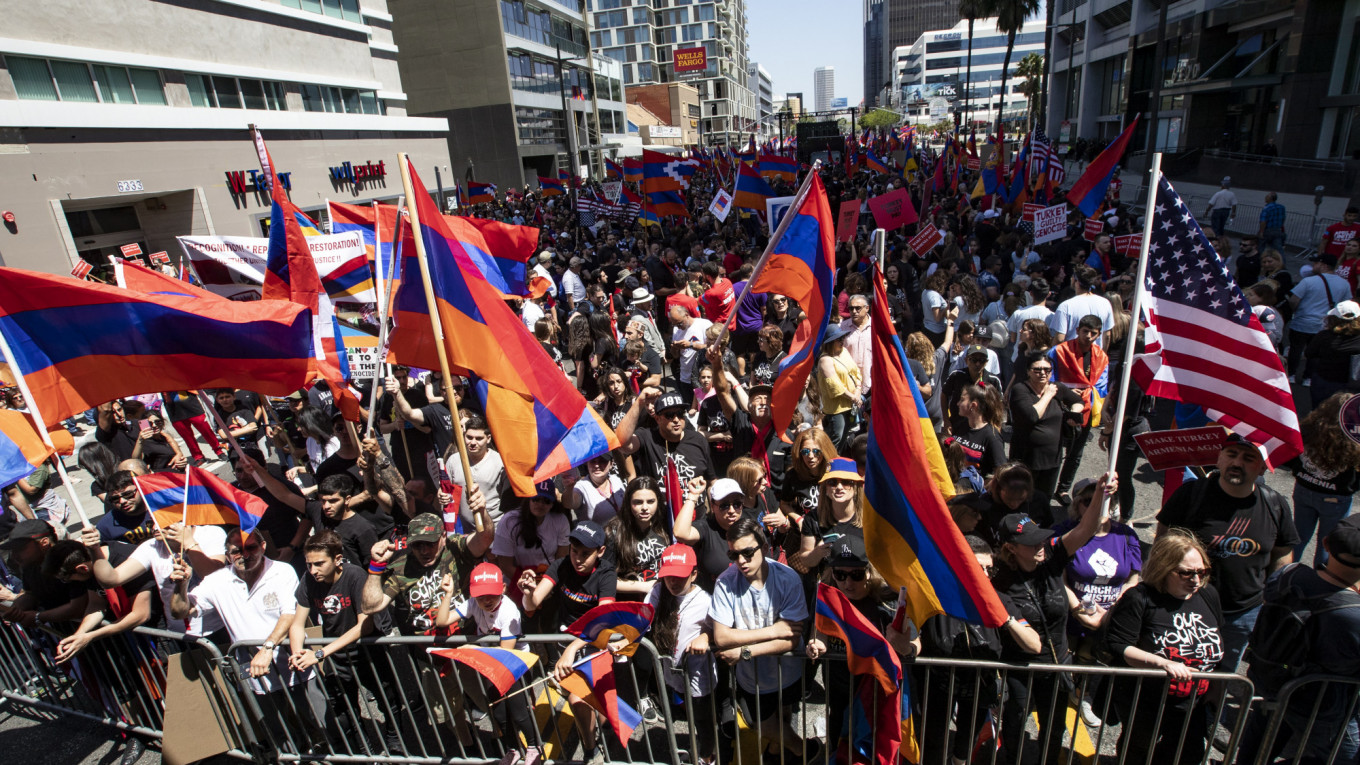 WHERE IS THE SOURCE OF THE POLICIES THAT PREVENT NORMALIZATION IN TURKISH-ARMENIAN RELATIONS?
WHERE IS THE SOURCE OF THE POLICIES THAT PREVENT NORMALIZATION IN TURKISH-ARMENIAN RELATIONS?
 UNDERSTANDING NAGORNO-KARABAKH DESPITE THE BIASED MANNER OF THE WESTERN MEDIA
UNDERSTANDING NAGORNO-KARABAKH DESPITE THE BIASED MANNER OF THE WESTERN MEDIA
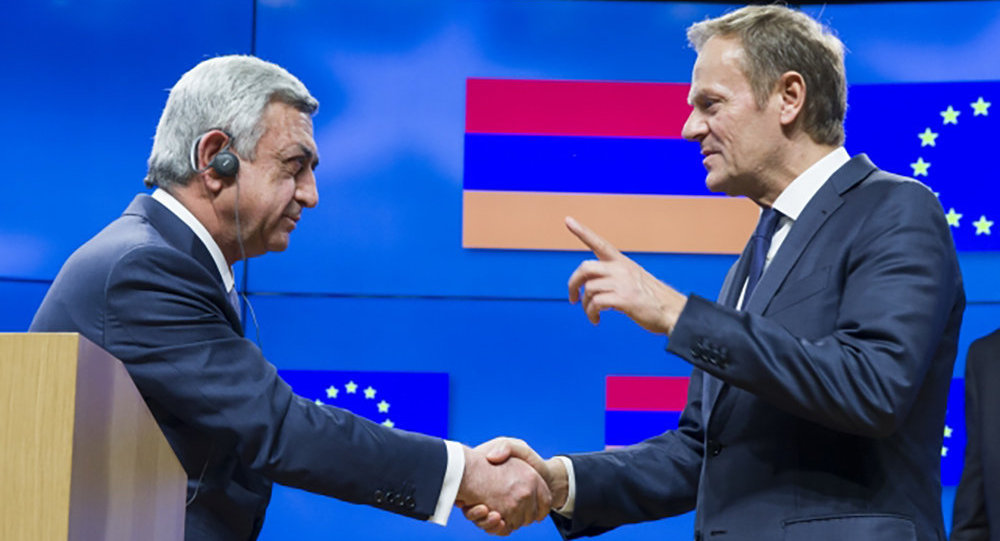 THE EUROPEAN UNION’S BRAND NEW AND “PRIVILEGED” PARTNER: ARMENIA
THE EUROPEAN UNION’S BRAND NEW AND “PRIVILEGED” PARTNER: ARMENIA
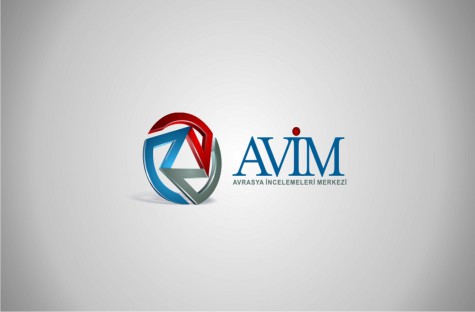 FREEDOM OF SPEECH IS NOT TO BE SELECTIVE
FREEDOM OF SPEECH IS NOT TO BE SELECTIVE
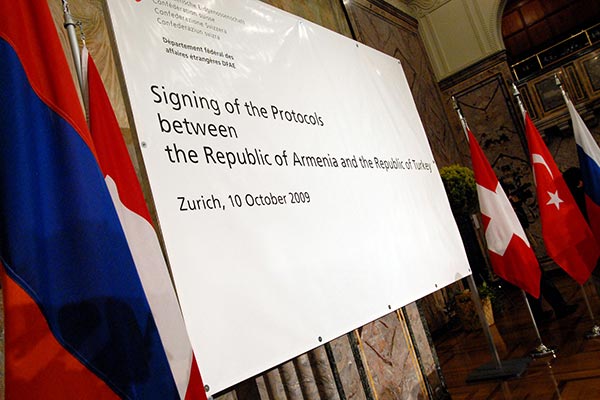 THE ZURICH PROTOCOLS AND DIASPORA
THE ZURICH PROTOCOLS AND DIASPORA
 AVIM’S CALL FOR A DIFFERENT APPROACH
AVIM’S CALL FOR A DIFFERENT APPROACH




























